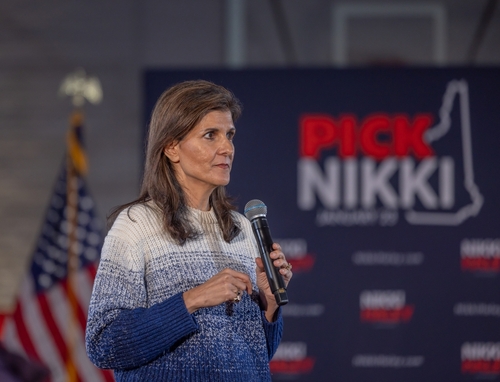
In a recent turn of events, GOP Presidential candidate Nikki Haley has found herself at the center of a social media storm. The controversy began when Haley posted on her Twitter account, expressing gratitude for supportive messages she claimed to have received from fans. Her tweet read, “Americans want a choice in this election, not a rerun. I’m overwhelmed by all of the kind words! We’ll keep working hard to make you proud.”
However, it wasn’t long before sharp-eyed observers noticed something amiss with the fan mail showcased by Haley. One particular email, supposedly from a supporter named Michael B., was highlighted as evidence of her widespread backing. Yet, upon closer inspection, it was revealed that the email was still in draft form and had not been sent, casting doubt on its authenticity.
God, this is embarrassing. Not only did they forget to hit "Send* on their fake email, but they used a handwriting font also for her so-called fan mail. @NikkiHaley is the faker than Joe Biden's dead son in Iraq story. pic.twitter.com/VEQqDul3XB
— MRS. MASSACRE (@Missus_Massacre) February 2, 2024
Adding fuel to the fire, another piece of fan mail shared by Haley appeared to be typed in a digital font, which lacked the personal touch typically associated with handwritten notes. This discovery led to further speculation that the messages could have been fabricated or manipulated to enhance the image of Haley’s popularity among voters.
Social media users did not hold back in their responses, with many calling out what they perceived as a clumsy attempt at self-promotion. Comments ranged from sarcastic tips about ensuring emails are sent before sharing them, to outright criticism of the competence of Haley’s social media team.
Bro – you posted an email and digital letter you typed to yourself claiming it's fan mail 💀 and want to drag Trump? You have no room Nikki Smollett! pic.twitter.com/MJ7xtrf9Ti
— Jessico Bowman (@JessicoBowman) February 3, 2024
The incident has raised questions about the lengths politicians might go to in order to portray a favorable public image. In the age of digital communication, the authenticity of online interactions is increasingly scrutinized, and any misstep can quickly become fodder for public ridicule or doubt.
In response to the backlash, inquiries were made to Haley’s team for clarification. They were asked to confirm whether the fan mail was based on actual messages received from supporters and to provide proof of the original communication to verify its authenticity. As of now, updates on this matter are pending a response from Haley’s representatives.
This situation serves as a cautionary tale for political figures navigating the complex landscape of social media. It underscores the importance of transparency and honesty in all forms of communication, especially when attempting to connect with voters and the public at large.
As the story unfolds, the public awaits further clarification from Haley’s camp. The outcome of this episode may well have implications for her presidential campaign, as trust and integrity remain paramount concerns for voters seeking genuine leadership.











